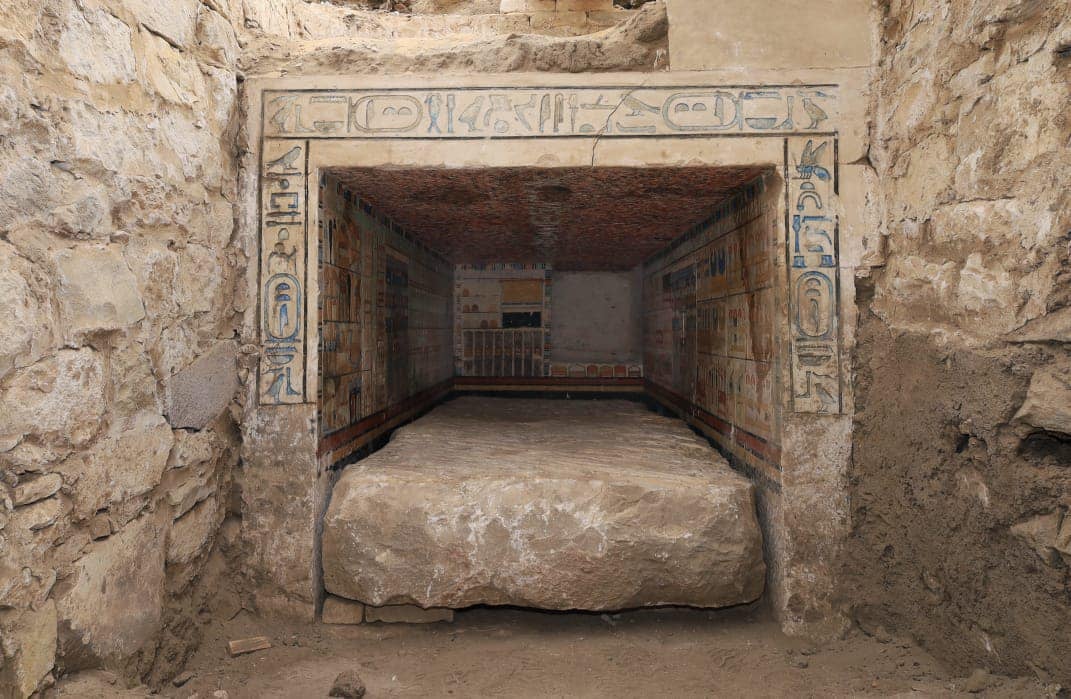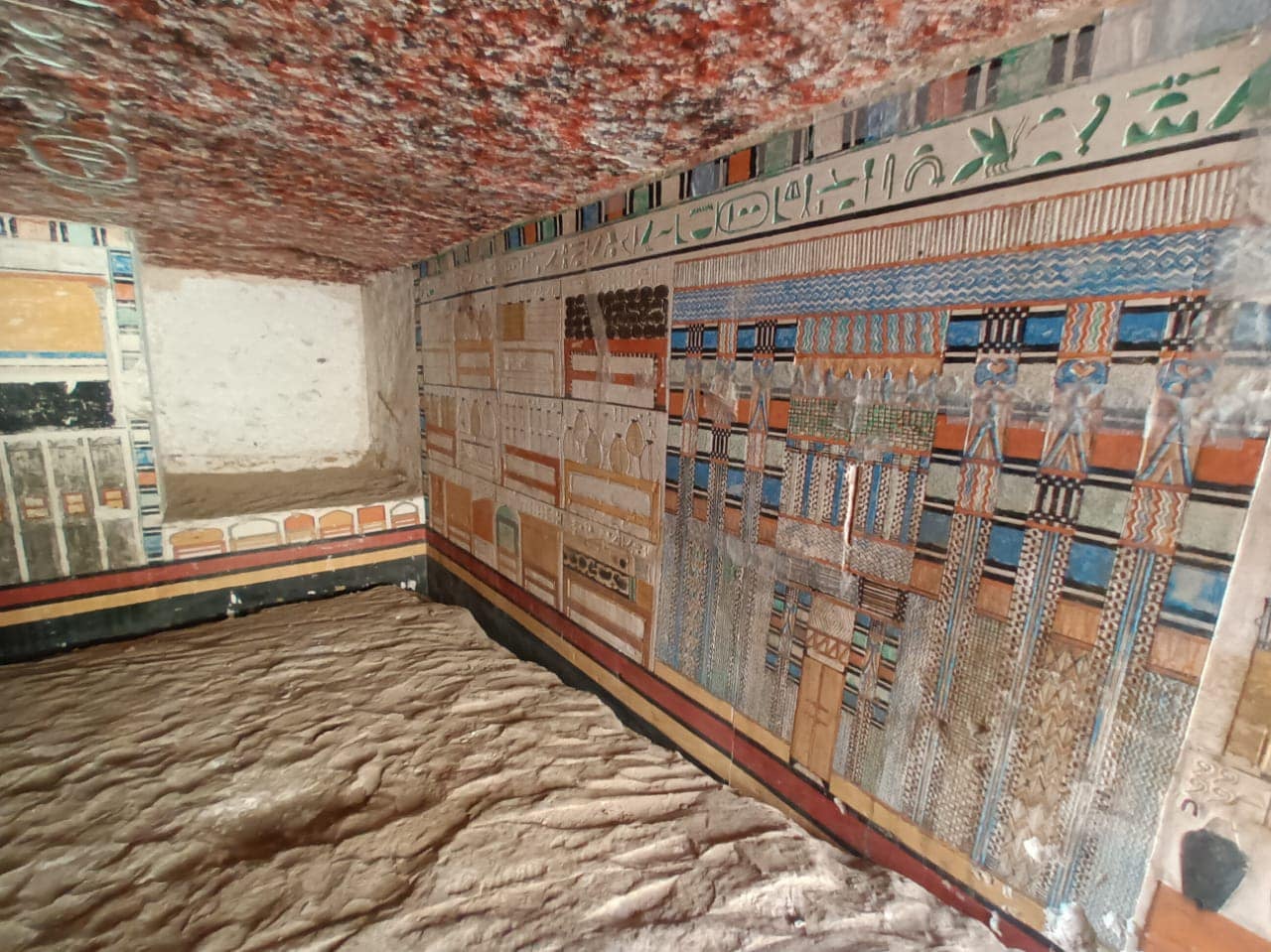Archaeologists unearth remains of ancient Egyptian wizard-doctor who treated pharaohs
Teti Neb Fu was likely an expert in treating scorpion or snake bites
Archaeologists in Egypt have unearthed the remains of a multi-skilled wizard-doctor who treated the pharaohs some 4,000 years ago.
The Egyptian Ministry of Tourism and Antiquities announced the discovery of his tomb in the old state of Saqqara on Monday. The tomb has a fake door and features distinctive engravings and drawings in bright colours.
“The tomb is adorned with stunning carvings and vibrant artwork, including a beautifully painted false door and scenes of funerary offerings,” the ministry said in a statement.
From the carvings on the tomb, archaeologists concluded that it belonged to the physician “Teti Neb Fu” who lived during the reign of King Pepe II of the sixth dynasty, between about 2305BC and 2118BC.

The inscriptions suggest that Teti Neb Fu was famous and held a “complete series of titles”, including “chief doctor of the palace” and “priest and magician” of the goddess Serket.
He was likely an expert in treating scorpion or snake bites given Sirkat was believed to protect those suffering from venomous bites and stings.
The physician also served as royal dentist and as “director of plant medicine”.

The discovery provides new insights into the culture and daily life of ancient Egypt, the ministry noted.
Archaeologists have also unearthed the remains of other members of King Pepe II’s court buried near him and his wives.
They found a stone coffin with hieroglyphics indicating the name and titles of the owner of the cemetery.

The latest finds came from an ongoing excavation in Saqqara that began in 2022.
Teti Neb Fu’s elaborate burial shows the ancient Egyptian kingdom revered both medicine and magic, archaeologists said.
Previous finds have shown that ancient Egyptians were trying to understand and treat cancer, and sought to develop herbal tinctures and lotions for various illnesses.
Join our commenting forum
Join thought-provoking conversations, follow other Independent readers and see their replies
Comments
Bookmark popover
Removed from bookmarks